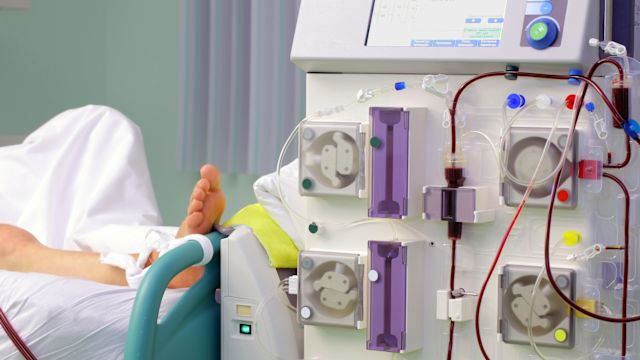Updated on March 10, 2025
Complement 3 glomerulopathy (C3G) is a group of rare kidney diseases caused by problems in a part of the immune system called the complement system.
The kidneys are a pair of organs that act like filters for the body. Blood passes through the kidneys, and the kidneys filter out excess fluid, waste, and substances the body does not need, which are then expelled as urine. When the kidneys are damaged, excess fluid and unwanted substances leak back into the bloodstream, and proteins and blood cells can leak into the urine.
The complement system is a network of proteins found in the blood, tissues, and on the surface of some cells. These proteins help the immune system fight infections and clear away damaged cells. Normally, complement system proteins activate when they encounter something like an infection or damaged tissue.
C3G occurs when the complement system does not function normally. “C3” refers to complement component 3, one of the many proteins of the complement system. When a person has C3G, C3 proteins are broken apart and the fragments become stuck in the delicate filtering mechanisms inside the kidneys. This results in injury, inflammation, and a loss of kidney function. Over time, this can lead to complications that significantly impact a person’s quality of life and health.
What are the complications of C3G?
Some of the potential complications of C3G include:
High blood pressure (hypertension)
The kidneys play an essential role in regulating blood pressure, the force that blood exerts on the walls of blood vessels as it travels through the body. When the kidneys do not function normally, excess fluid and other substances (like salts and hormones) cause blood pressure to increase. Kidney damage can cause hypertension, or blood pressure that is chronically elevated. Hypertension can accelerate kidney damage, and also damage the eyes, heart, and brain.
Hypertension can belong to a cluster of symptoms called nephritic syndrome. Other symptoms of nephritic syndrome include blood in the urine, decreased output of urine, and edema.
Nephrotic syndrome
Nephrotic syndrome is a group of symptoms that occur when the kidneys are not working fully. Symptoms of nephrotic syndrome include:
- High levels of protein in the urine (proteinuria), and specifically, high levels of a protein called albumin (albuminuria). Consequently, when more albumin ends up in the urine, there are low levels of albumin in the blood.
- Swelling caused by a buildup of fluid (edema). This commonly affects the hands, feet, ankles, and face.
- High cholesterol and triglyceride levels in the blood (hyperlipidemia), which can contribute to cardiovascular disease, stroke, and other problems with the heart and blood vessels.
- Other symptoms can include fatigue, poor appetite, weight gain, foamy urine, and skin problems, such as rashes or sores.
Chronic kidney disease (CKD)
Chronic kidney disease, or CKD, is a loss of kidney function that gets progressively worse over time. This means the kidneys are filtering less and less blood over time. This occurs in about half of people who have C3G after 10 years. There are different stages of CKD, which are calculated based on the amount of blood being filtered through the kidneys and the amount of protein that is present in the urine.
Kidney failure
When the kidneys are functioning at 15 percent or less of the rate of healthy kidneys, a person has kidney failure. End-stage renal disease (ERSD) refers to chronic kidney failure that requires treatment with dialysis or kidney transplant for a person to remain alive.
Treatment for C3G
There is no cure for C3G, but there are therapies that can manage the condition, slowing the progression of damage to the kidneys and preventing complications. Treatment will depend on the severity of the disease and will vary from person to person, but a treatment plan can include:
- Medications to control blood pressure, reduce protein in the urine, and lower cholesterol
- Drugs that act on the complement system (complement inhibitors) and other medications that act on the immune system, such as corticosteroid or immunosuppressive drugs.
- Changes to diet and other lifestyle modifications may also be recommended.
Your best source of information about a diagnosis and recommended treatment options will be a healthcare provider. Treatment for C3G is typically overseen by a nephrologist, a medical doctor who specializes in diseases that affect the kidneys.



